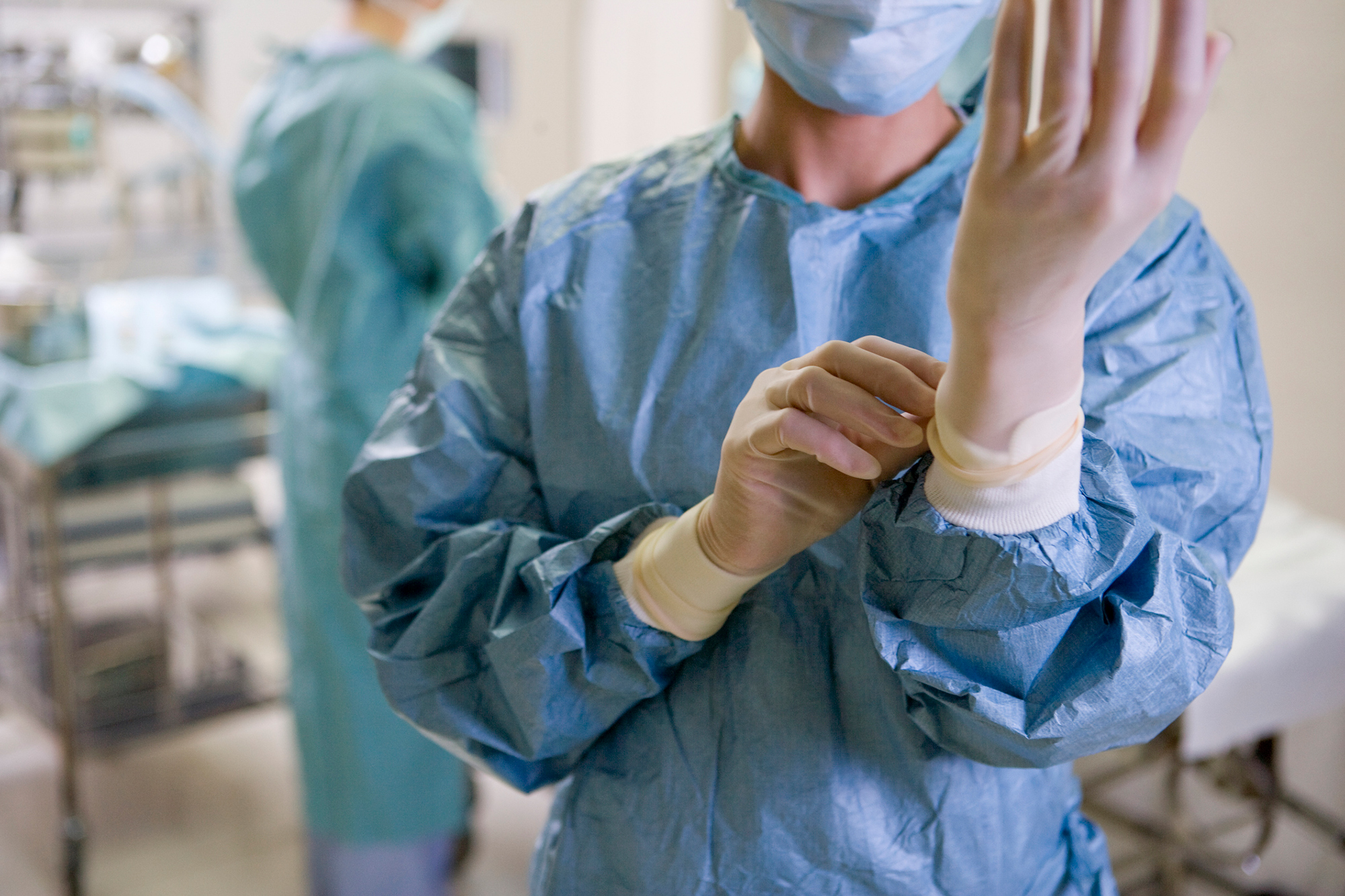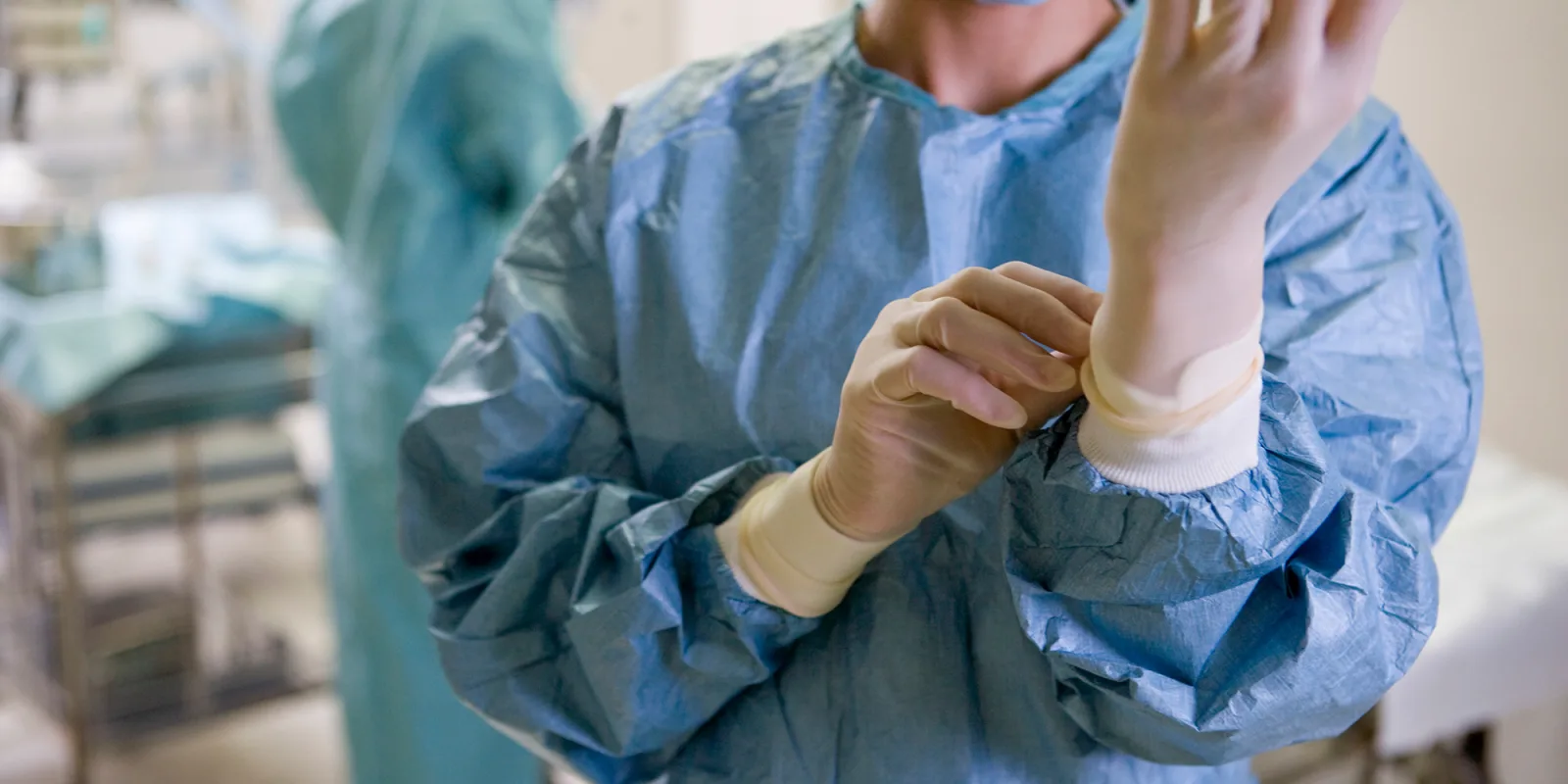
I vividly remember the first time I scrubbed into a surgery. I was sweaty. Observing in the OR is always very cold as the rooms are often kept at frigid temperatures, so I usually wear a jacket. But this time, my first time scrubbing in, I was sweaty. Maybe I was nervous or maybe the blue paper parkas necessary for surgery made me sweaty.
I had worked in the local hospital for years and had been observing urological cases for several weeks now, but it was somehow different this time.
The scrub nurse took me to the hallway sinks to teach me how to scrub properly. I quickly realized from this moment that surgery is a team sport, much like many other specialties. It requires hard work and skill from the techs, nurses, radiologist, and anesthesiologist in addition to the surgeon.
I entered the OR as if for the first time. The scrub nurse helped me gown and glove up, which took me much longer compared to the seasoned surgeon I was with. I felt uncomfortable in my mask, not knowing how to properly bend the nose piece to keep it out of my eyes. It kept slipping up into my eyelashes, but I was determined to maneuver it away using my mouth instead of making any noise about it. In contrast, my mentor seemed at ease, as if the OR was a place he felt at home. I stood at a comfortable distance to begin with because I was worried about somehow messing him up.
Being a medical student in the OR is a little nerve-racking. We don’t know very much and we are fearful of upsetting anyone. I wasn’t really even a medical student yet — I was a research fellow the summer before my M1 year.
I started to lean in closer as he began. Surgery was mesmerizing. He inserted the cystoscope easily and began the path to look into the bladder. I had seen this surgery done a few times before, but watching never got old. He quizzed me about the prostate on the way to the bladder — its enlargement may have contributed to the patient’s bladder stones.
After a quick visualization of the bladder, he removed the cystoscope. He handed it to me. We were using a manual cystoscope that day because the camera cystoscope was not working properly.
I fumbled a bit inserting the scope. Once I was in the bladder, we inserted a basket-like device that essentially scooped the bladder stone out of the patient. Moving around in the bladder was not what I expected. I was able to capture the stone and bring it out.
Exhilaration. This is the only way I can describe how I felt in this moment.
I was elated! Surgery was better than Disneyland by a mile. We put the stone into a small test tube for specimen collection. It was a quick and simple surgery for my mentor, but it was the world to me at that moment.
I don’t know if many doctors remember what it felt like the first time they scrubbed in — the weird feeling of the scrubbing routine, the surgery gown spin to tie it around the back, the first gloves, the first scope insertion, sutures, incision. It was something I won’t forget.
I took a picture of the specimen bladder stone we collected. I thought it was huge! Months later, I referred back to it when talking about some high points of my fellowship. My mentor laughed — he hardly remembered it. I am extremely grateful for my mentor and the OR staff teaching me that summer.
Small teaching moments to them were shaping the trajectory of my future career. Now, nearing the end of my M1 year, I can say that experience changed the way I thought about medicine in my first year. I know I will be more comfortable in the OR during rotations because of those experiences. Maybe I’ll be a little less sweaty next time.
Morgan Sweere Treece is a second year student at the University of Arkansas for Medical Sciences pursuing an MD/MPH degree. She is currently the Student Volunteer Coordinator at the student-run clinic, part of her class’ Honor Council, and a part-time phlebotomy technician in a local emergency department.







